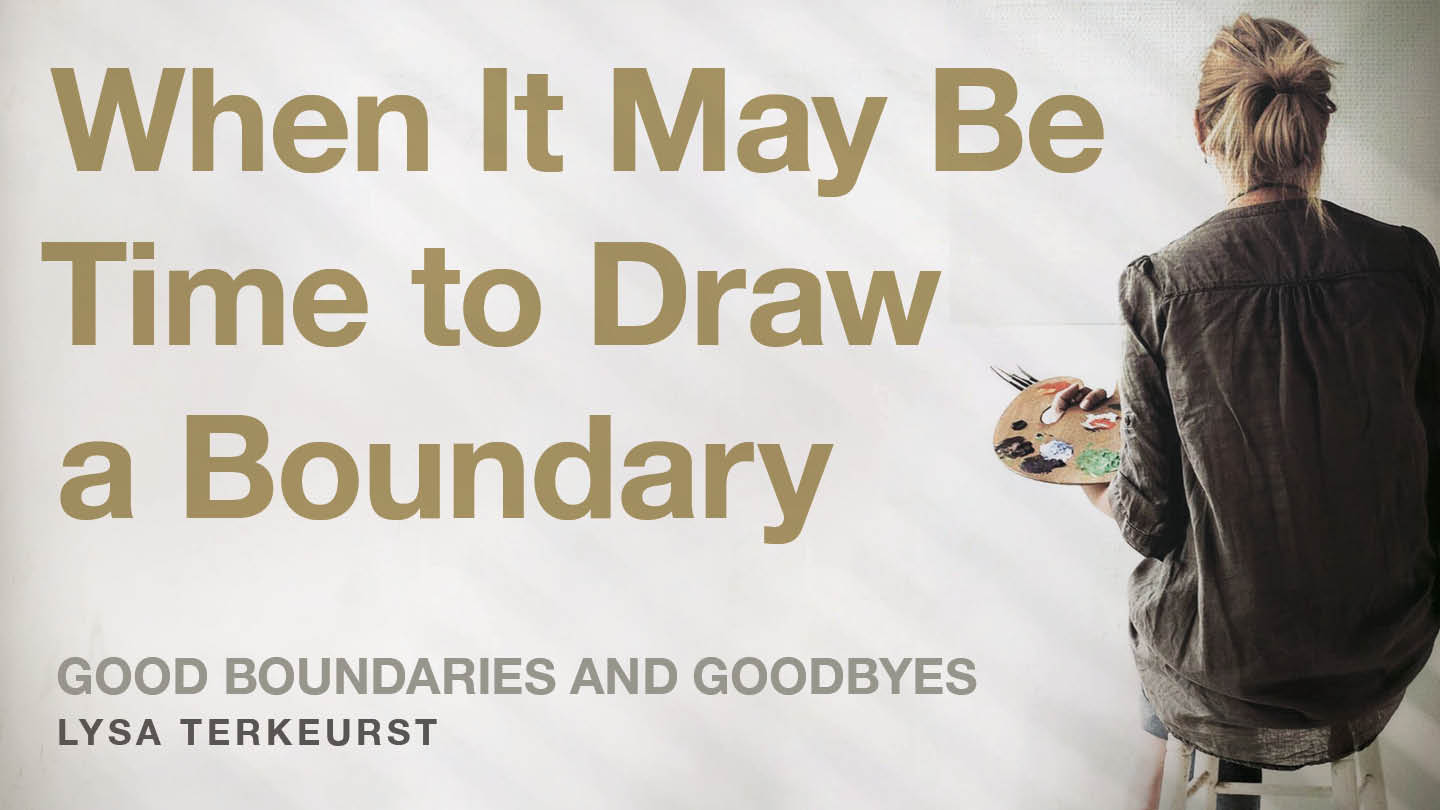Good Boundaries and Goodbyes预览


I’ll never forget asking my counselor to help me process how I finally got to the place where I said, “No more. No more devastation. No more betrayal. No more.”
I wondered if that was the moment I became broken. He replied, “Lysa, I don’t think that was the moment you broke. I believe that was the moment you healed.”
I know what it feels like to be paralyzed by another person’s choices and not know what to do about it. In the past, I’ve been hesitant to draw boundaries both because it felt uncaring and I didn’t have the confidence to know how to implement and communicate healthy parameters.
Now I’ve discovered a better way to view boundaries. I don’t draw boundaries hoping to force another person to change in ways they may be unwilling or incapable of changing.
Instead, I place boundaries on myself to help me exercise self-control over what I will and will not tolerate. Self-control is crucial so that I regulate my reactions and direct my efforts toward staying in a healthy, healed place.
I’ve found that boundaries aren’t just a good idea; they are a God idea. And oftentimes, good boundaries are the only fighting chance I have for navigating relational challenges in a productive, biblical way.
If you’re in a “no more” kind of place today, consider these questions around boundaries. These questions aren’t meant to grant permission for selfishness or peacing out on responsibilities. They’re meant to help us identify where we are dancing with dysfunction and how appropriate boundaries can help (Proverbs 25:28).
- What are some areas of my life where I have the most limited capacity right now?
- Based on my realistic assessment of capacity, how does this relationship threaten to hyperextend what I can realistically and even generously give?
- Do I feel the freedom in this relationship to communicate what I can and cannot give without the fear of being punished or pushed away?
- What are some realistic restrictions I can place on myself to reduce the access this person has to my most limited emotional or physical resources?
- How am I suffering the consequences of their choices more than they are?
- What are their most realistic and unrealistic expectations of me? What are my most realistic and most unrealistic expectations of them?
- What boundaries do I need to put in place?
Remember: toxic realities in relationships will not tame themselves. We cannot ignore them into health. Nor can we badger them into a better place. We have to get honest about the hardships that are complicating and probably preventing the kind of health we not only want but need for some of our relationships to survive.
I’ve learned we can’t just “get over” our hurts; we have to work through them. And boundaries are a great way to start experiencing healing in your own life.
RESPOND: Is there a relationship in your life where boundaries may need to be implemented? As you begin to process all of this, remember: this may be hard, but you are not alone.
圣经
读经计划介绍

Is it unchristian to set a boundary or sometimes have to say a necessary goodbye? Lysa TerKeurst has asked these questions. But after countless hours of counseling intensives and theological research, Lysa is more committed than ever to loving people without losing the best of who she is. She wants to help you begin to do the same through this 5-day devotional.
More









